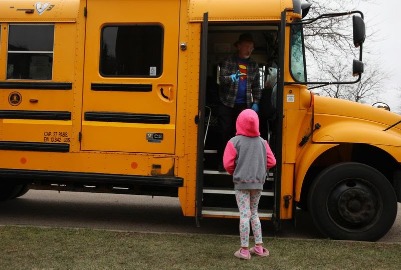
It was Friday, March 13, and for teachers at Juliette Low Elementary School in Arlington Heights, the bad luck tied to the date proved prescient.
Concerns about the coronavirus had prompted Community Consolidated School District 59 to shutter its 15 schools through early April, leading the principal and social worker at Juliet Low — where 65% percent of students are from low-income families — to scramble to a nearby grocery store on their lunch hour, filling their carts with nonperishable foods.
Every Friday, we send a group of our students ... home with backpacks full of food, and so we had to ask ourselves, with schools closing, how can we continue to make that happen?” said Katie Ahsell, an assistant superintendent in District 59.
It’s a question that is keeping educators such as Ahsell awake at night, knowing that — for families who count on their kids’ schools for everything from student meals and mental health counseling to internet access and before- and after-school care — the coronavirus has shut the door on far more than just the buildings where learning takes place.
“We immediately called all of the families we know who are already struggling ... and asked them, ‘What do you need from us?' ”